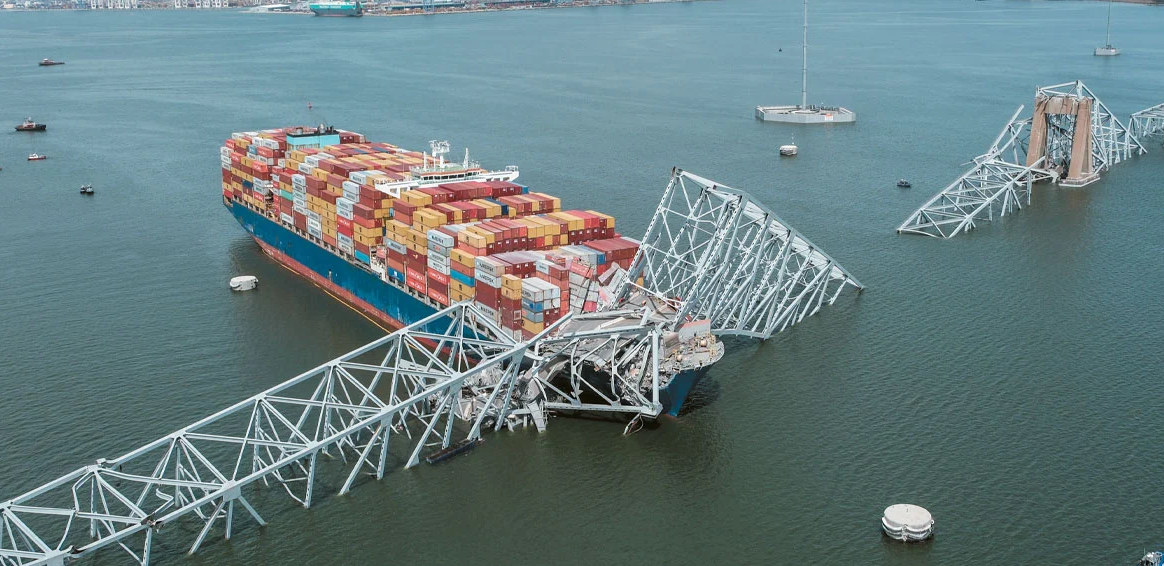The owner and operator of the Dali containership involved in the recent collision with Baltimore’s Francis Scott Key Bridge are seeking to minimize their legal responsibility by invoking an antiquated law.
Grace Ocean, the ship’s owner, and Synergy Marine, responsible for its operations, are aiming to cap their liability at approximately $43.7 million — the assessed value of the vessel following the accident, as stated in a court filing made on Monday in Maryland. These Singapore-based companies had valued the 95,000-metric ton Dali at up to $90 million before the bridge collision occurred.
However, the cleanup and repair efforts following the incident are expected to diminish the overall value of the ship. Repair costs are estimated to be at least $28 million, with salvage expenses adding up to another $19.5 million, as projected by the companies. Additionally, the freight onboard was valued at $1.2 million. A revised estimation will be submitted once the final costs of salvage and repair are determined.
Grace Ocean and Synergy Marine have submitted their petition under a federal law dating back to the 19th century, which restricts owners’ liabilities to the post-incident value of the vessel and the freight onboard. This legal tactic was previously employed by the owner of the Titanic, which sank in 1912 during its inaugural voyage. At the time, the Titanic was insured for £1 million, according to Lloyd’s of London, where many of Dali’s reinsurers operate.
Forbes has released its list of the world’s billionaires
Experts anticipate that the Baltimore bridge accident will result in billions of dollars in insurance claims, potentially making it one of the largest single marine insurance losses.
If the request for limitation is approved, the companies stand to save a considerable amount on the anticipated claims. However, they must demonstrate that they were not at fault for the incident and had no prior knowledge of negligence or other contributing factors leading to the disaster.
The outcome of the official investigation will also significantly impact the success of the petition. This legal process is expected to span several years.
Michael Sturley, an authority in maritime law and professor at the University of Texas at Austin’s School of Law, remarked that while the limitation act is commonly invoked, it is far less frequently granted success.
Ask me anything
Explore related questions





